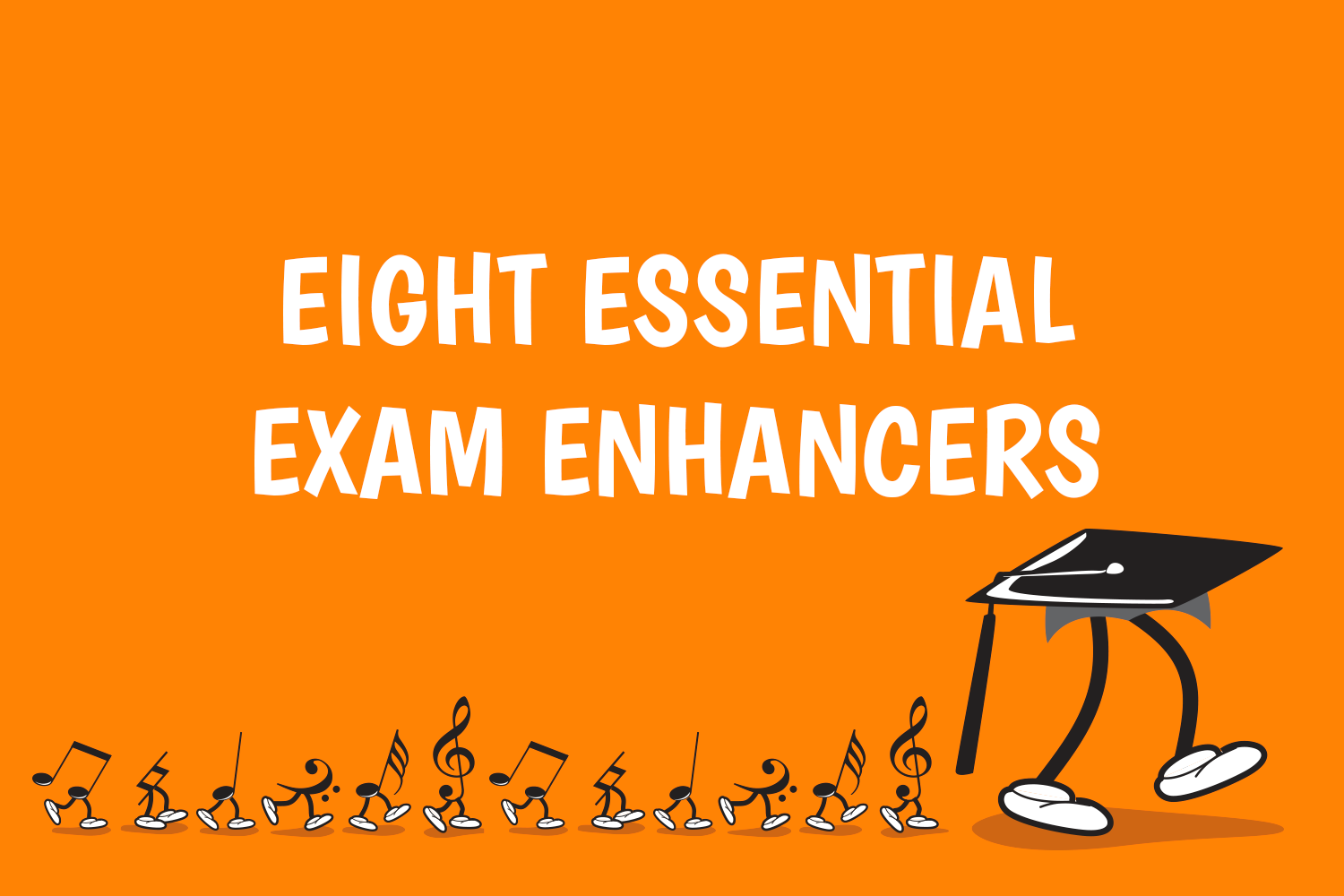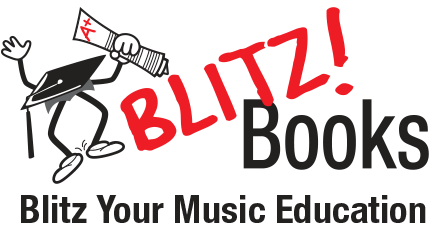Eight Essential Exam Enhancers

With the May written exam series fast approaching, here is a series of tips that will help students and parents prepare for the big day…
1. Revise regularly
We all know that knowledge quickly gained is knowledge quickly lost. Use these last four weeks to do steady revision each day – don’t try to cram it all in the night before!
2. Arrive at least half an hour early
The supervisors start calling the students in well before the allotted starting time. There’s a lot of sitting around to do so it’s best to expect this and have strategies for coping, like doing some mental revision, and slow breathing if you’re feeling at all anxious.
3. Have adequate materials
At least 3 pencils and a good eraser are the absolutely essential materials, in a small clear zip lock bag. It’s also very important to bring the exam notice with your candidate number on it! Some students try to memorise this number – there’s no need to, just bring the exam notification with you.
4. Use the reading time
This is a really important one. There is 10 minutes of reading time before the exam starts. In my opinion this is the most important 10 minutes of the whole exam.
Back in 2007 when I sat the Music Craft exams to see what they were like, I was really eager to see the exam content. As soon as the 10 minutes of reading time began, I was able to satisfy my curiosity! I read every question very carefully, thinking about the style of questioning and how my students might cope. Looking around, I could see that almost every other student in the room was sitting looking bored, not reading the paper, just waiting to be told to start writing.
Once we were allowed to start writing, it felt like I was having a second chance at answering the questions because I had already done them in my head. I found that there was much less chance of me misreading the question or making a silly mistake, and that I was able to ‘correct’ things along the way, sort of like proof-reading or checking, but different because I hadn’t actually written anything down the first time around. The students who had not read through the paper did not have this advantage.
The 10 minutes’ reading time is your opportunity to get a head start on the exam and to think through everything carefully. You’ll then be much more likely to write all your answers correctly.
5. Check your work
The really important things to check are that you’ve answered every question on the paper, that you haven’t accidentally skipped a page (always check the backs of every page), and that all of your notes and words are clearly legible.
Checking all of your answers is important but will only work up to a certain point. Don’t we always ask someone else to proofread our own work? That’s because it’s very hard to see our own mistakes. By all means read over your paper at the end, but a much better strategy is to read the question carefully first (see Enhancer no. 4) and complete each task slowly and thoughtfully (see Enhancer no.6). This will give you a much better chance of getting a high mark.
If you find that you have finished early, even after having taken time to check your paper three times, you may ask to leave early if you are done. Some supervisors will not let students leave early no matter what time they finish, so you’ll just have to sit quietly. A more standard rule is to not let anyone leave within 15 minutes of the official end time – this is to avoid major distractions for people working right until the end.
6. Don’t rush
It’s not a race to see who can finish the exam the fastest (and it’s certainly best not to make such a pact with friends before you begin J). Also, don’t think that completing it quickly and giving yourself more time for checking at the end is a good strategy. It’s NOT. The more you rush, the more careless errors you will make, and it’s very difficult to pick these up (see Enhancer no. 5).
7. Use the spare manuscript paper
You will always be given a piece of spare manuscript paper on which you can draft answers and jot down notes. This is the place where, if you’ve learnt it, you should write down your Key Signature Table straight away! Just remember that you won’t be allowed to take the paper out of the room with you.
8. Enjoy yourself afterwards
It’s a while before you’ll know your results, so there’s no point dwelling on it. Go out for ice-cream, have a friend over, celebrate during the family dinner… whatever you like to do to relax!
Although these Exam Enhancers only really apply to the face-to-face written exams, for those of you doing online exams any time soon: Enhancers 1, 5, 6 and 8 still apply to you!

I WOULD LIKE SOME GUIDANCE ON HOW TO USE YOUR FOUR PART HARMONY BOOK. DOES IT REQUIRE IN
PARTICULAR YOUR GRADE 5 THEORY BOOK?
Hi Thomas it is a small reference book designed to help with general harmony exercises. It doesn’t require any other book as such, but it is designed to supplement other texts, rather than the other way around.